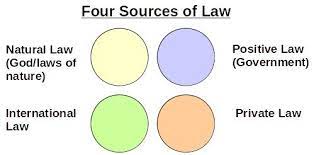Law and Government: Pillars of Modern Society
Government and law are two linked pillars that support contemporary society. They establish the framework for stability, justice, and order, influencing how people interact, how businesses run, and how communities prosper. These ideas have a long history and have developed through time to take into account shifting social mores, technical development, and the requirements of a challenging international environment. Government and law have a complex relationship, with both influencing and enhancing the other in significant ways.
A nation’s or a community’s government plays a crucial role in developing, executing, and upholding laws. It is in charge of upholding social order, defending citizens’ rights, and advancing welfare in general. The legislative branch of the government, which is frequently made up of elected representatives, is entrusted with drafting laws that reflect the objectives and values of the society it represents. Laws are suggested, discussed, and ultimately codified through a deliberative process, creating the legal framework that governs several elements of daily life.
Program on Law & Government
On the other hand, laws are the guidelines set forth by the government to control social relationships and behaviour. They cover a wide range of topics, including consumer and environmental rights, property rights, and criminal justice. Laws ensure that people are aware of the limits of proper behaviour and the repercussions of transgressing established norms, giving people a sense of predictability and justice. In this way, regulations foster peaceful cohabitation amongst various social groupings and help to create a just and orderly society.
Government and law have a dynamic connection that is characterised by this interaction. Governments are in charge of maintaining the rule of law by making sure that the law is consistently applied and upheld. This dedication to the rule of law fosters accountability and helps prevent the use of power arbitrarily. Laws, in turn, give governments the power necessary to control and manage public affairs. The delicate balance between people’s rights and the general welfare depends on this mutually beneficial partnership.
The legal system also serves as a check on governmental authority, guarding against potential abuses and defending individual rights. The legal system’s central institution, courts interpret and apply the law to settle disputes and uphold justice. Courts can determine the constitutionality of government actions and policies through judicial review, ensuring that they adhere to the core values inherent in the legal system. This process promotes a society in which no entity is above the law and protects against overreach and tyranny.

Government and law are essential to international relations. Governments negotiate and uphold treaties, agreements, and international laws to promote cooperation, settle disputes, and address global concerns. These legal systems serve as a foundation for international relations, trade, and the peaceful settlement of conflicts.
In conclusion, law and government are essential elements of contemporary society, working together to produce justice, progress, and order. The government enacts, upholds, and enforces laws that control conduct, safeguard rights, and establish social standards. The legal system also makes sure that governments respect peoples’ rights and act in accordance with existing laws. A healthy and just society is built on this complex interaction between law and governance, which promotes stability, individual freedoms, and societal wealth. The interaction of law and government will be crucial in handling new issues and determining how civilization develops as cultures continue to change.
